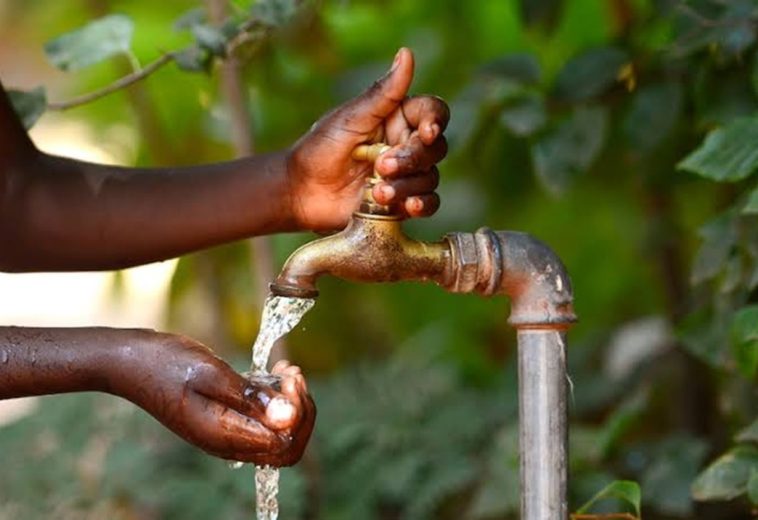In a world characterised by geopolitical tension, Africa’s commitment to fostering peace stands out as a powerful example of regional and global collaboration. From financial mechanisms like the African Union (AU) Peace Fund to strategic partnerships with international stakeholders, the continent is building a robust framework for stability that transcends borders.
Data from the African Union (AU) reveals that in 2017, African intergovernmental organisations under the African Peace and Security Architecture (APSA) facilitated peace diplomacy efforts in 27 instances and successfully mediated 13 conflicts. This reflects Africa’s proactive engagement in conflict resolution, reducing its reliance on international interventions. In the following year, these organisations mediated in 14 conflicts and contributed to 13 peace agreements, showcasing Africa’s commitment to African-led solutions for peace.
READ ALSO: Insight into ECOWAS Security Council: Stability & Advancement
The creation of APSA is central to these efforts, with a focus on conflict prevention, peacemaking, and effective peace operations. By strengthening African-led peace initiatives, the AU is developing sustainable, locally-driven solutions that enhance the continent’s overall security framework.
To enhance peacemaking capabilities, the African Union (AU) and Regional Economic Communities (RECs) have developed comprehensive frameworks and support structures. These include mediation guidelines and standing panels for peace diplomacy, drawing on both indigenous African peacebuilding practices and international best practices. Through global partnerships with development experts, these frameworks are increasingly effective in addressing Africa’s unique security challenges.
In July 2016, the AU Assembly of Heads of State and Government endowed the AU Peace Fund with $400 million from Member State contributions, derived from the 0.2% levy instituted to finance the AU budget. Since 2017, the Fund has received the highest level of Member State contributions (currently over $55.9m), significantly bolstering Africa’s peacekeeping efforts.
African Peace Operations and International Cooperation
Africa’s peacebuilding journey is not undertaken in isolation. Strategic partnerships with international organisations such as the United Nations (UN) and major global powers, including China, have fortified the continent’s capacity to manage and resolve conflicts. The United Nations-African Union Hybrid Operation in Darfur (UNAMID) and the Economic Community of West African States (ECOWAS) have been instrumental in restoring peace in West Africa, with ECOWAS interventions in Sierra Leone (1997-2000) and Liberia (1990-1997) serving as milestones in regional conflict resolution.
The ECOWAS Monitoring Group (ECOMOG) played a crucial role in military efforts to reinstate constitutional governance, demonstrating Africa’s proactive stance on peace missions.
In the Sahel region, the G5 Sahel Joint Force, which includes Burkina Faso, Chad, Mali, Mauritania, and Niger, focuses on countering terrorism and transnational crime. Despite facing funding gaps, this African-led initiative underscores the continent’s resolve to address its own security challenges.
China’s Growing Role in Africa’s Peace Efforts
China’s involvement in Africa’s peacebuilding initiatives is emerging as an important pillar. With increasing dialogues and funding, China is contributing to stabilisation efforts on the continent. By fostering collaborative partnerships, African nations and China are exploring innovative approaches to peacekeeping, shifting the dynamics of international cooperation for peace and security in Africa.
Financing Africa’s Peace Efforts: The AU Peace Fund and Global Support
Financing peace efforts remains one of Africa’s most pressing challenges, yet the continent is demonstrating its commitment to long-term stability. The AU Peace Fund has been key in increasing Africa’s financial contribution to peacekeeping operations and attracting global partnerships. For example, the United Nations Security Council Resolution 2719 now allows African-led missions to access UN-assessed contributions, enhancing sustainability in peace efforts across the continent.
A striking example of Africa’s growing autonomy is the intervention of the Economic Community of West African States (ECOWAS) in Sierra Leone, where swift military action in the late 1990s helped restore constitutional order, showcasing Africa’s capacity to independently manage peace operations.
Africa’s Stability and Its Impact on Global Peace
Africa’s stability is not only vital for the continent but is also crucial for global peace. The continent’s role in providing resources, markets, and fostering innovation underscores the global importance of its security. Conflicts in regions like the Sahel threaten international peace, and the success of African-led initiatives may serve as a model for conflict resolution worldwide.
Furthermore, when African nations like Somalia stabilise, they help mitigate global challenges such as piracy, terrorism, and forced migration. These stabilising effects reduce pressures on global systems and highlight the benefits of shared security responsibilities. Collaborative frameworks between the AU, the UN, and regional powers demonstrate how mutual cooperation can yield global benefits.
Challenges and the Future of African Peace Operations
Despite notable progress, Africa still faces several challenges in peacebuilding. Limited logistical capabilities and the complexity of hybrid missions often strain the effectiveness of peace operations. The UN-AU partnership in Darfur, for example, faced coordination difficulties due to divided authority. However, such experiences provide valuable lessons in the importance of unified leadership, clear roles, and better coordination.
Africa’s bold approach to funding its peace initiatives is a testament to its determination. By blending local expertise with global partnerships, Africa is charting a unique path toward lasting stability. The continent’s peace agenda is driven by the belief that peace is not merely the absence of war but the presence of justice, opportunity, and collaboration.




